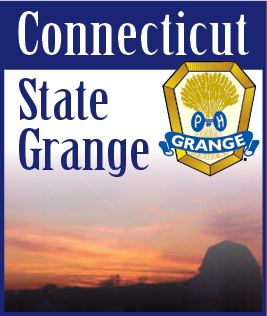| SEPTEMBER 2008 -- Campaign financing is big business. Each candidate for Congress will spend more than one million dollars in their bid to win a seat. The candidates for President will each spend hundreds of millions of dollars in their bid for the White House. All of this money must be raised through donations. Lobbyists and special interest groups donate a large portion of this money with the hope that if their candidate is elected, they will have their senator’s or representative’s ear when they are promoting their cause. Some special interest groups will even contribute to both major party candidates for the same office so that no matter who wins the election, the group will have an “in” with the winner.
This year, for the first time in history, candidates for the Connecticut General Assembly can receive funding from the Citizen’s Election Program if they agree not to accept any funds from lobbyists, contractors and political action committees of various organizations. More than 130 candidates have already qualified for funds from the new program by raising funds through small contributions from individuals who live in their district.
The candidates may also accept small contributions from individuals outside their district, but those contributions will not count towards the minimum needed to qualify for funds from the Citizen’s Election Program. Funding for the program comes from the sale of abandoned property by the State, voluntary contributions and interest earned on money already in the program. None of the money comes from taxes or fees. There are 151 seats in the House and 36 seats in the Senate. That is a total of 187 seats in the Connecticut General Assembly. If both major parties had a candidate for every seat, there would be 374 candidates for the General Assembly.
Why haven’t more candidates qualified for funds from the new program? In some districts there is only one major party candidate who is running unopposed. Many of these candidates have chosen not to apply for the funds so there will be more for the candidates in the contested races. Other candidates have not raised enough funds within their district to qualify for the Citizen’s Election Program funds. Still other candidates have chosen to take a “wait and see” attitude towards the funds and are relying on contributions which make them ineligible for the funds in this year’s election.
Speaking on the new program, Governor M. Jodi Rell said, “What do the people of Connecticut get in return? They get election campaigns free from the influence of special interests. They get election campaigns without lingering questions about who donated and why. They get candidates who can spend less time fundraising and more time with voters. And they get elections where ordinary citizens who never thought they could afford to run for office can now mount a credible campaign.”
The Grange has a long and cherished history of staying strictly non-partisan at all times. We lobby for issues, but we never endorse a candidate for office or contribute to their campaigns. Due in large part to our non-partisan principles, we are able to work successfully with legislators on both sides of the aisle. Grange members are encouraged to work as individuals for the candidates of their choice, but the Grange itself does not work for any candidate.
The Grange did not take a position for or against the Citizen’s Election Program when it was being debated in the General Assembly because the delegate body at the State Grange sessions had never even considered a resolution on this issue and the Legislative Committee felt it was too close to partisan politics for comfort. But we would like to think that the General Assembly looked at the Grange as an organization that lobbies for issues while staying out of partisan politics and drafted the Citizen’s Election Program based on our principles. |
